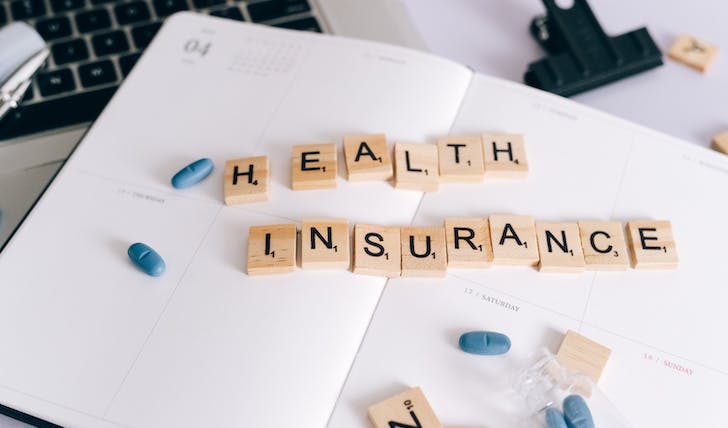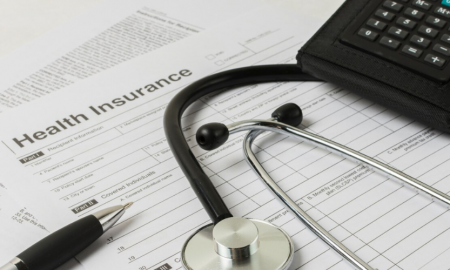
Everything You Need to Know About Grace Period in Health Insurance Plans

Imagine missing your health insurance premium payment by just a day and facing a health crisis the next day. Scary, right? But here is where the grace period in health insurance comes as a lifesaver. So, it is that extra time insurers give you to pay your premium without losing coverage. It is like a buffer for those ‘just in case’ moments.
What Exactly is a Grace Period?
Simply put, a grace period is a set time after the due date during which you can still pay your health insurance premium without losing your coverage. Think of it as a cushion provided by your insurance company. It is like having an extra piece of cake at a party: You do not need it. But you are glad it is there!

RDNE / Pexels / Grace period is a set time when you can pay your health insurance premium without losing the coverage.
Here is why grace periods are a big deal:
- Protection Continuity: Missed your payment date? No worries. The grace period ensures your health coverage does not lapse.
- Financial Flexibility: It gives you breathing space during tough financial times.
- Peace of Mind: Knowing there is a safety net can ease the stress of managing payment deadlines.
Duration of Grace Periods: Not a One-Size-Fits-All
The length of a grace period can vary. Typically, it ranges from 15 to 30 days, but it depends on your insurer and policy terms. Some policies may offer longer grace periods, while others might have shorter ones.

Lee / Pexels / During the Grace Period, always check your policy document for the specifics.
Here is what happens during the Grace Period:
- Coverage Continues: Your coverage remains active. If you need medical attention, you are still covered.
- Payment Countdown: The clock is ticking. Pay before the grace period ends to avoid policy cancellation.
- Notifications Galore: Expect reminders from your insurer. They usually do not want to lose you either!
Special Considerations for ACA Plans
Under the Affordable Care Act (ACA), grace periods can be up to 90 days if you are receiving a subsidy and have paid at least one full month’s premium during the benefit year. However, this can be a double-edged sword.
If you do not pay by the end of the 90 days, the insurer can retroactively cancel your coverage to the end of the first month of the grace period.
The Catch: Restrictions and Consequences
- Delayed Claims Processing: Claims made during the grace period might be held until you pay your premium.
- Risk of Cancellation: If the grace period ends and you have not paid, your policy could be canceled.

RDNE / Pexels / Getting a new policy after cancellation can be a headache, often involving higher premiums and new waiting periods. This is the downside of the Grace Period.
Navigating Through the Grace Period: Best Practices
- Mark the Calendar: Set reminders for your premium due dates.
- Communicate with Your Insurer: Facing financial difficulties? Talk to your insurer. They might be able to help.
- Do Not Abuse It: Treat the grace period as a safety net, not a regular practice. Consistently paying late might affect your relationship with the insurer.
Summing Up
Grace periods in health insurance are designed to give you a bit of wiggle room, not to be a regular escape route. It is crucial to understand the specifics of your policy’s grace period and manage your finances to avoid relying on this provision.
Just as you take care of your physical health, taking care of your financial health, especially regarding insurance payments, is essential. Understanding and respecting the grace period in your health insurance plan is a step towards financial responsibility. After all, it is not just about having insurance. It is about making sure it works for you when you need it the most.
More in Motivation
-
`
The Physical Signs of Hunger and How Mindful Eating Makes a Difference
Hunger is one of the most basic yet essential signals our body uses to communicate its need for energy. However, many...
December 15, 2024 -
`
Why Did Chris Pratt Call Anna Faris Before Proposing to Katherine?
Chris Pratt, the beloved star of “Guardians of the Galaxy,” made headlines when he revealed that he called his ex-wife, Anna...
December 3, 2024 -
`
6 Proven Tips to Tackle Insurance Claim Denials Successfully
Claim denials are a common hurdle for healthcare providers and professionals, even for those who follow the necessary procedures to avoid...
December 1, 2024 -
`
5 ‘Bad’ Fitness TikTok Trends You Shouldn’t Follow
TikTok has become a haven for creative fitness advice. But not all trends are worth your time or your health. From...
November 23, 2024 -
`
Does Drinking Water Affect Adrenal Hormones?
Drinking water is often seen as a simple way to stay hydrated, but it has deeper effects on our body than...
November 14, 2024 -
`
Why We Feel the Loss of Celebrities So Deeply?
Celebrity grief might sound strange at first. After all, most of us have never met these famous figures in person, yet...
November 5, 2024 -
`
Are High Deductible Insurance Plans as Ideal as They Appear to Be?
High deductible insurance plans have been a hot topic for years, especially as healthcare costs continue to rise. For many Americans,...
October 31, 2024 -
`
How Training Load Data Can Transform Your Exercise Routine
Tracking progress during workouts is challenging. Simple metrics like mileage or time don’t show the whole picture. Understanding the overall effort...
October 26, 2024 -
`
Katy Perry’s Weight Loss Journey: Secret Diet Tips Revealed
Katy Perry’s weight loss journey has been making headlines, with the pop star shedding 20 pounds over the past few months....
October 16, 2024















You must be logged in to post a comment Login